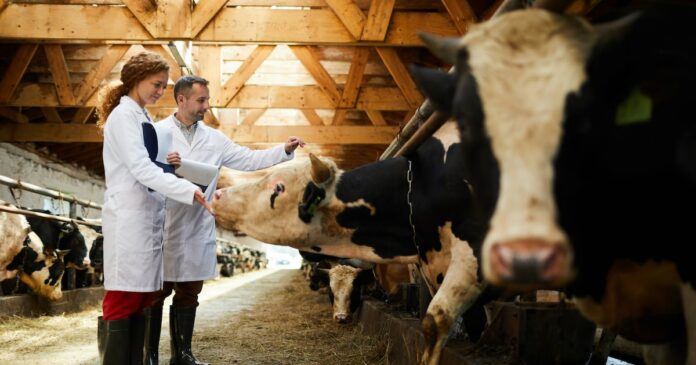The United Kingdom has recently implemented a ban on the import of sheep and pigs from Germany due to reports of an outbreak of foot-and-mouth disease in the country. While there have been no reported cases of the disease in the UK, the ban has been put in place to safeguard the livelihoods of farmers and ensure the country’s food security. UK Chief Veterinary Officer Christine Middlemiss emphasized the importance of utilizing all measures to limit the risk of the disease spreading and urged livestock keepers to remain vigilant for any signs of disease.
The outbreak of foot-and-mouth disease in Germany was first detected in a herd of water buffalo in Hönow, Brandenburg, just outside Berlin. This marks the first occurrence of the disease in Germany in nearly four decades. As a response, authorities in Brandenburg and Berlin have halted the transport of animals that can transmit the disease for a six-day period while investigations are conducted. While the disease does not pose a threat to humans, it presents a significant risk to cattle and must be contained to prevent further spread.
The consequences of the outbreak in Germany are likely to impact meat and dairy exports from the country. While exports to other EU countries may continue under current regulations, Germany has lost its status as being free from foot-and-mouth disease according to the World Organisation for Animal Health requirements. This loss of status has resulted in the inability to issue many veterinary certificates required for exports outside the EU, making exports of goods such as meat, dairy products, hides, skins, and blood products “hardly possible” at this time. Some countries, like South Korea, have already begun restricting imports of German meat in response to the outbreak.
Foot-and-mouth disease is a viral infection that affects cattle, swine, sheep, goats, and other cloven-hoofed ruminants. Symptoms include blisters on various parts of the body, depression, fever, weight loss, and loss of appetite. While the disease has an incubation period of 2-14 days and can be fatal in young animals, it does not pose a risk to human health.
In conclusion, the UK’s decision to ban imports of sheep and pigs from Germany in response to the foot-and-mouth disease outbreak highlights the importance of stringent biosecurity measures to safeguard livestock and food security. The implications of the outbreak on meat and dairy exports from Germany serve as a reminder of the far-reaching consequences of animal diseases on international trade and agriculture. Vigilance and prompt action are crucial in containing and preventing the spread of such diseases to protect the health and well-being of both livestock and consumers.




